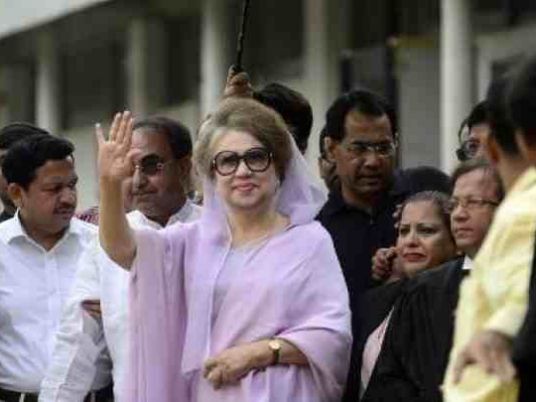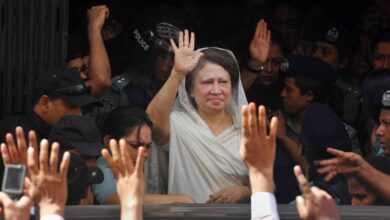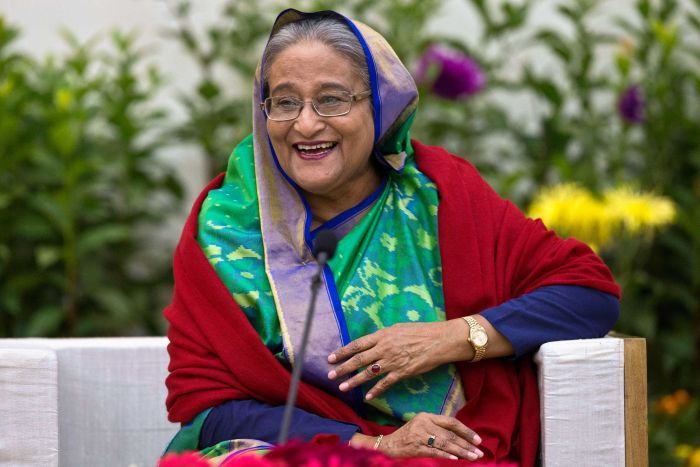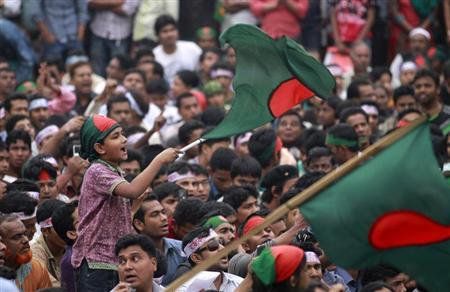
Bangladesh's main opposition leader Khaleda Zia was locked in her office by police in Dhaka on Sunday, her aide said, ahead of the first anniversary of an election her party boycotted.
Zia had threatened to hold mass rallies in the capital to mark "Democracy Killing Day" on Monday marking a year since the polls that her Bangladesh Nationalist Party (BNP) and its Islamist allies refused to join, alleging the ruling party would rig the vote.
"She has been confined in her office. Police have cordoned off the area and barricaded (the) road. She wanted to see a sick party colleague around midnight, but they did not let her out," Zia's aide S.R. Shimul Biswas told AFP.
The main opposition headquarters in central Dhaka were padlocked by police at midnight on Saturday, according to local television channels, with police vans barricading nearby roads.
Zia was forced to spend the night at the party office, the aide said, despite attempting to leave by car.
Police inspector Firoz Kabir denied that Zia was forcibly kept in the office.
"We've not detained her, only her security has been enhanced. She is not leaving her office," he told AFP.
Police also stormed the home of the party's deputy leader, the private Somoy Television channel said, and arrested senior leader and key party spokesman Rizvi Ahmed, who fell ill and was taken to a hospital by police escort.
Zia had been attempting to visit Ahmed.
Tension has been rising in the politically volatile South Asian nation since January 1 when Zia demanded fresh polls under a neutral caretaker government and threatened to bring the country to a halt if her demand is not met.
BNP officials said at least 400 party supporters were arrested, including two other senior party figures, ahead of the poll anniversary.
Zia's decision to boycott the "farcical" election handed a walkover victory to her bitter rival Prime Minister Sheikh Hasina after no vote was cast in the majority of the parliamentary seats.
Zia was confined to her home in the build-up to last year's election, but was released after the polls.
The United States has said the polls did not credibly reflect the will of the people and called for a new election to be contested by all parties.
Zia and her allies alleged Hasina would rig last year's vote with a biased election commission and a "partisan" civil administration.
Since the controversial election, Hasina has consolidated her power by arresting opposition officials, prosecuting hundreds of thousands for violence in the run-up, and launching trials of Zia and her eldest son on graft charges.
Scores of BNP activists have disappeared with rights groups blaming security agencies.



